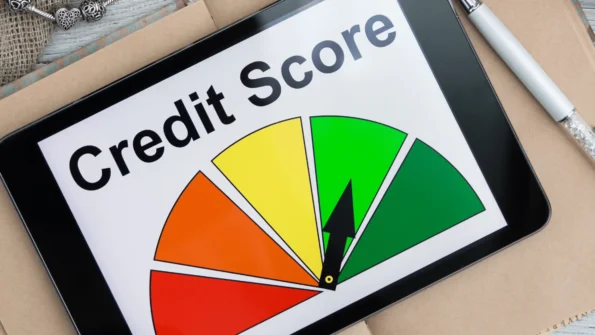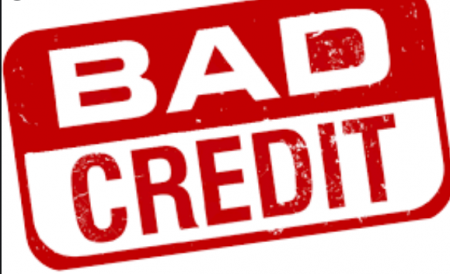Canada has a credit score range of 300 to 900 points, with 900 being the highest score you can get. What a bad credit score is, strictly depends on who’s asking and why.
However, any credit score that is less than 650 is generally not considered a healthy score. At that credit score range, lenders, your future employers, and even potential landlords will be reluctant to consider you for a loan, a job or house to live. If you’d like to know more, then read on to find out the effects and remedies of a bad credit score.
What’s a Bad Credit Score?
A bad credit score is any score that limits your access to the best financial and credit products. A bad score also makes you pay more in fees and interest. And this happens because you can only get access to products with higher interest payments.
Many Canadians ask “What’s a bad credit score?” But the fact is there’s no one score that is considered bad. What is a bad credit score for buying a car may be a very good score for renting an apartment.
Also, there are two different agencies responsible for assessing Canadians – TransUnion and Equifax, and this means your score from one company may differ slightly from the other. The lowest credit score to secure a car loan in Canada is around 630. However, there’s a consensus any score lower than 650 will make you miss out on the best credit offers.
Top Causes of Bad Credit Score
Maxing Your Cards
Most Canadians are aware credit card debt isn’t healthy for their credit score. But just a few understand there’s more to bad credit than late bill payments. Maxing out your credit cards while paying only the mandatory minimum will most likely lower your score. A lot of funds on your credit card means you have high credit utilization. And if you use up to 90% of that credit, this further increases your utilization and affects your score.
The reason is that despite making the minimum payments; you don’t have enough funds to pay off the debt accruing on your cards which makes you a risky borrower. It gets doubly worse when you max out all your cards as your minimum payments won’t be enough to stop your credit score from sliding downhill.
Collection Agencies
It is not unusual for credit card companies to hire collection agencies to recover overdue payment, especially where the company hasn’t charged off the debtor’s account. If you’re the borrower and your account is referred to a collection agency, your credit history will show this information thus damaging your credit score.
Charge-offs
A charge-off is something every Canadian must avoid at all costs. Barring bankruptcy, it is the worst thing that can affect your credit score. A charge-off occurs when a credit card company flags you as a delinquent.
The company may close your account and write you a letter of demand for full payment of your debt. Canadians who miss at least six months of payment stand the risk of getting charged off. And once this happens, it will take up to 3-7 years for the information to fall off your record.
Missed Loan Payments
Consecutively missing your loan payments is like sowing the wind. You’d end up reaping the whirlwind. Just like a charge-off, the lender can declare you delinquent and sue to recover the debt you owe. If you default on an auto loan, your creditor can apply to repossess your car which will wreck your credit score. Your inability to repay your car loan will haunt your credit file for up to 7 years.
Bankruptcy
If you’d like to know what gives you bad credit like no other, then file for bankruptcy. It is the absolute worst thing you can do to damage your credit score.
You should only do this when there’s no alternative. You might try to settle some of your debt, but your credit will hit an all-time low. Bankruptcy judgments can stay up to a decade on your credit report, making it difficult to rebuild your credit.
The bad news is, bankruptcy in Canada is steadily on the rise. And while it is still not a regular event, bankruptcy is the single biggest action that can decimate your credit score. A Canadian with an excellent score of 800+ before bankruptcy proceedings can end up with a score of -500 after the bankruptcy process.
Effects of a Bad Score
A bad credit score has a ripple effect on your financial life. Some of which include:
- You cannot get access to credit cards with low rates and cashback offers.
- You cannot secure a mortgage or qualify for a loan from a grade “A” lender. And even if you secure a loan from another institution, it will be at a higher interest rate.
- Renting a home will be difficult because many Canadian landlords reject potential tenants with credit scores that are lower than 650.
- It might be impossible for you to get a job in the financial services sector or as a civil servant. Mandatory credit checks are normal to secure these positions.
How to Improve a Bad Credit Score
The best way to improve your credit score is to make better life choices. Be that as it may, there are other things you can do to see an improvement in your score. For more information on maintaining and improving your credit score, consider the following:
Big Debts First
The first thing to do is to draw up a debt plan. Mark out the debt with the highest interest rates and pay those first. This will free up funds to attend to other payments later. Once you start paying off what you owe, your credit score will take a turn for the better.
Timely Payments
One way to improve your credit score is to make sure it doesn’t deplete. To ensure your credit score doesn’t drop any further, start making your payments when they are due. Late payments affect your score and must be avoided at all costs.
Track Your Credit
As a Canadian, you have access to a free credit report once a year from Equifax and TransUnion. However, if you’d like to improve your credit score fast, consider requesting your report more than once in a year. You can also install a credit monitoring app to track your spending.
Final thoughts
It takes time to increase your credit score and like all good things; it doesn’t come easy. But with patience and the right approach, you can pay off your debt and get the credit score you’ve always desired.







